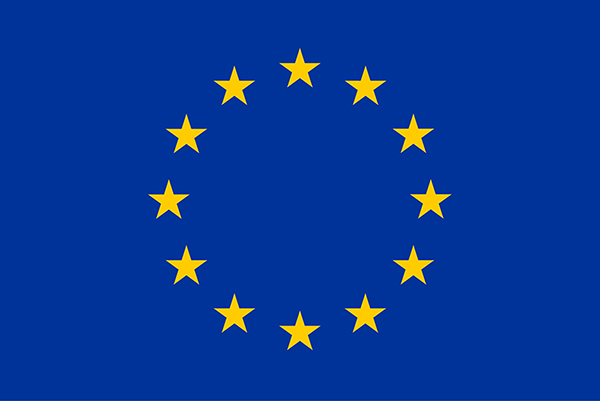EUTEENS4GREEN Projects
#EUTEENS4GREEN Awarded Beneficiaries
Changes at "GREen inclusion of vulnerable social Groups through environmentAl awareness focusing on sustainability, circulaR economY and resilience and Understand"
Body
-
-["
- 💡 Description
- GRECONVERSION is to raise awareness educate local/multicultural students coming from vulnerable social groups on coastal/marine plastic pollution, pinpoint waste management R’s - Reduce-Reuse-Recycle.\n\n\nThe climate crisis, the loss of biodiversity and pollution from plastics are the most urgent challenges of our time. Moreover, climate change and environmental issues of sustainability are topics of significant importance in the modern world. By halting global warming and mitigating its impact, Europe hopes to become the first climate-neutral continent by 2050. With Europe's latest development policy, namely the\n\nGreen Deal and 2030 Agenda, there is a great expectation and movement towards a circular economy and bio economy. EU biodiversity strategy for 2030: Bringing nature back into our lives has an immediate impact.\n\nYouth engagement will be crucial in determining whether the environmental conditions that benefited human civilizations for over 10,000 years will exist beyond this century. Young people have proven the relevance of their involvement and demonstrated their readiness to join other stakeholders and governments in efforts to protect biodiversity.\n\nThe purpose of GRECONVERSION is to raise awareness and educate local and multicultural students coming from vulnerable social groups (on the island of Lesvos) on the very crucial issue of coastal and marine plastic pollution, with an emphasis on the waste management R’s - Reduce-Reuse-Recycle, focusing on the resilience factor and taking immediate actions to address them.\n\nThe youngsters coming from diversified social and cultural environments have totally different critical thinking and literacy in green issues, so GRECONVERSION is having the challenge to engage and empower them with the necessary training and education transforming them to “change agents”.\n\nThe project’s educational content training methods are based on the cultivation of environmental values through the empathetic treatment of their natural environment, as well as the promotion of respective attitudes, behaviours personal choices that will help address the issue.\n\nThe project the activities will enlighten youngsters about the sources of pollution, as well as introduce them to environmental concepts, such as micro-plastic management circular economy. In addition, the project describes the issue and its consequences, as well as activating personal and group activities to prevent and deal with it, but also to enhance skills through the investigation of the issue, intriguing the youngsters in field research activities, transforming them to vital actors in the sustainable transition.\n\nGRECONVERSION is designed to use a special non-formal educational methodology (R4 - Reduce, Reuse, Recycle, Resilience) an innovative “learning by doing” approach which combines outdoor activities workshops with well-organized guided research by the youngsters. The methodology will enable them to better reflect on ethical dimensions receive practical skills related to environmental responsiveness. The ecological biodiversity risks arising from regional livelihoods; social vulnerabilities arising from livelihood opportunities in urban areas; social structures in need of higher capacities for environmental ethics values will be covered. In the vulnerable multiverse community of Lesvos, reflecting such realities, environmental education needs to incorporate the social dimension of the environmental sustainability challenges that will be identified by the youngsters.\n\nThe project activities are the following:\n\n1st phase (01-04 months) - Development of smart educational tools and organisation of four targeted workshops aiming at empowering their knowledge by presenting some of the most successful global best practices in regard to the reuse of plastic waste. The four Interactive training workshops will follow by two consecutive weeks of fieldwork.\n\n2nd phase (04-06 months) – Organised the guided environmental survey - collecting analysing the gathered material from the selected beaches and parallel installation of the recycling bins.\n\n3rd phase (06-09) - Selection analysis of the outcome of the recycling bins including the sorting, the measuring the registering of the outcome together with the preparation of the project’s white paper. Parallel to this activity, the announcement and the organization of the open “drawing the changed future” open to all schools.\n\n4th phase (9-10 month) – The Organization of the upcycling art competition out of recyclable items (gathered) exhibition will be taking place. Parallel to that will be the designing and organization of the competition, which will take place with the outcome exhibited (open to the community)\n\n5th phase (11th month) – Will be focused on web dissemination the digital presentation of the project in combination with a web competition that will take place with all the schools.\n\n6th phase (12th month) – The final workshop will take place as a feedback tool where the participants will be sharing their experiences presentation of the results of the drawing of their “changed ‘’future’’ with the assistance of the evaluation paper based on the Plastic Waste Perceptions Survey.
- 🎯 Target Group
- 🌱 Expected Results
- Number of Events (in total): 10\n\nNumber of participants (in total): 120\n\nNumber and type of material distributed: 6\n\nExpected Research findings: 4\n\nNumber of training hours: 15
- ✉️ Contact
- 🔗 More Info
-
+["
- 💡 Description
- GRECONVERSION is to raise awareness educate local/multicultural students coming from vulnerable social groups on coastal/marine plastic pollution, pinpoint waste management R’s - Reduce-Reuse-Recycle.\n\n\nThe climate crisis, the loss of biodiversity and pollution from plastics are the most urgent challenges of our time. Moreover, climate change and environmental issues of sustainability are topics of significant importance in the modern world. By halting global warming and mitigating its impact, Europe hopes to become the first climate-neutral continent by 2050. With Europe's latest development policy, namely the\n\nGreen Deal and 2030 Agenda, there is a great expectation and movement towards a circular economy and bio economy. EU biodiversity strategy for 2030: Bringing nature back into our lives has an immediate impact.\n\nYouth engagement will be crucial in determining whether the environmental conditions that benefited human civilizations for over 10,000 years will exist beyond this century. Young people have proven the relevance of their involvement and demonstrated their readiness to join other stakeholders and governments in efforts to protect biodiversity.\n\nThe purpose of GRECONVERSION is to raise awareness and educate local and multicultural students coming from vulnerable social groups (on the island of Lesvos) on the very crucial issue of coastal and marine plastic pollution, with an emphasis on the waste management R’s - Reduce-Reuse-Recycle, focusing on the resilience factor and taking immediate actions to address them.\n\nThe youngsters coming from diversified social and cultural environments have totally different critical thinking and literacy in green issues, so GRECONVERSION is having the challenge to engage and empower them with the necessary training and education transforming them to “change agents”.\n\nThe project’s educational content training methods are based on the cultivation of environmental values through the empathetic treatment of their natural environment, as well as the promotion of respective attitudes, behaviours personal choices that will help address the issue.\n\nThe project the activities will enlighten youngsters about the sources of pollution, as well as introduce them to environmental concepts, such as micro-plastic management circular economy. In addition, the project describes the issue and its consequences, as well as activating personal and group activities to prevent and deal with it, but also to enhance skills through the investigation of the issue, intriguing the youngsters in field research activities, transforming them to vital actors in the sustainable transition.\n\nGRECONVERSION is designed to use a special non-formal educational methodology (R4 - Reduce, Reuse, Recycle, Resilience) an innovative “learning by doing” approach which combines outdoor activities workshops with well-organized guided research by the youngsters. The methodology will enable them to better reflect on ethical dimensions receive practical skills related to environmental responsiveness. The ecological biodiversity risks arising from regional livelihoods; social vulnerabilities arising from livelihood opportunities in urban areas; social structures in need of higher capacities for environmental ethics values will be covered. In the vulnerable multiverse community of Lesvos, reflecting such realities, environmental education needs to incorporate the social dimension of the environmental sustainability challenges that will be identified by the youngsters.\n\nThe project activities are the following:\n\n1st phase (01-04 months) - Development of smart educational tools and organisation of four targeted workshops aiming at empowering their knowledge by presenting some of the most successful global best practices in regard to the reuse of plastic waste. The four Interactive training workshops will follow by two consecutive weeks of fieldwork.\n\n2nd phase (04-06 months) – Organised the guided environmental survey - collecting analysing the gathered material from the selected beaches and parallel installation of the recycling bins.\n\n3rd phase (06-09) - Selection analysis of the outcome of the recycling bins including the sorting, the measuring the registering of the outcome together with the preparation of the project’s white paper. Parallel to this activity, the announcement and the organization of the open “drawing the changed future” open to all schools.\n\n4th phase (9-10 month) – The Organization of the upcycling art competition out of recyclable items (gathered) exhibition will be taking place. Parallel to that will be the designing and organization of the competition, which will take place with the outcome exhibited (open to the community)\n\n5th phase (11th month) – Will be focused on web dissemination the digital presentation of the project in combination with a web competition that will take place with all the schools.\n\n6th phase (12th month) – The final workshop will take place as a feedback tool where the participants will be sharing their experiences presentation of the results of the drawing of their “changed ‘’future’’ with the assistance of the evaluation paper based on the Plastic Waste Perceptions Survey.
- 🎯 Target Group
- 🌱 Expected Results
- Number of Events (in total): 10\n\nNumber of participants (in total): 120\n\nNumber and type of material distributed: 6\n\nExpected Research findings: 4\n\nNumber of training hours: 15
- ✉️ Contact
- maria.bykadorova12@gmail.com
- 🔗 More Info
_cropped.png)






